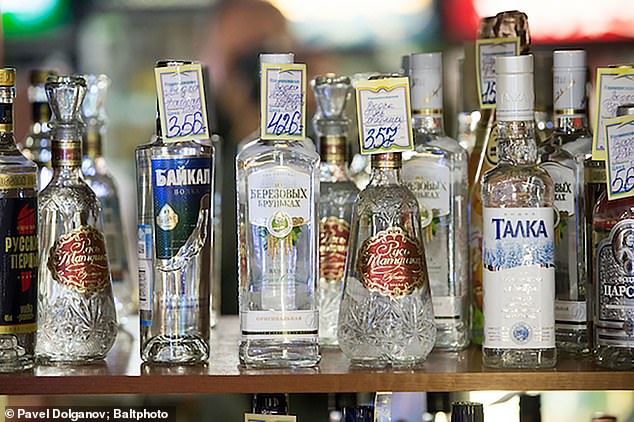
Russia’s federal statistics agency, Rosstat, has unveiled a concerning trend: the first increase in nationwide alcoholism cases in over a decade. While stress induced by the pandemic is considered a key factor, which has now ended for many years. Experts also point to “intensifying geopolitical confrontations” (Ukraine war) as contributing to this surge, as reported by Kommersant newspaper on Monday.
In its ‘Healthcare in Russia-2023’ report released in late December, Rosstat revealed a noteworthy decline in newly diagnosed alcohol dependence and alcoholic psychosis cases from over 150,000 in 2010 to around 53,000 in 2021. However, a shift occurred in 2022, witnessing an upswing with approximately 54,200 new alcoholism cases, including 12,900 cases of alcoholic psychosis.
The initial decline in alcohol-related issues was attributed to government measures, including restrictions on sales and advertising, along with state initiatives promoting a healthier lifestyle. These policies played a pivotal role in reducing alcohol poisoning-related mortality by over 53% over the past 15 years.
Unfortunately, the positive trajectory has been disrupted, with the Health Ministry acknowledging “slight negative dynamics” in alcoholism and alcohol-related deaths following the pandemic.
In an interview with Kommersant, psychiatrist and narcologist Ruslan Isaev confirmed a noticeable surge in cases of alcoholic psychosis and treatment requests since the pandemic’s onset. He links this increase to “socio-economic upheavals, increased geopolitical confrontations, and sanctions pressure.”
However, some critics question whether the Rosstat data presents the full picture. Tatyana Klimenko, Director of the National Research Center for Narcology at Russia’s Health Ministry, argues that the agency’s numbers indicate only an “insignificant fluctuation” during the pandemic, rather than an overall growth.
This alarming trend is not unique to Russia, as other countries have experienced increased alcohol consumption in the pandemic’s aftermath. In the US, federal data reveals accelerated growth in alcohol consumption during Covid-19 lockdowns, accompanied by a more than 45% rise in alcohol-related deaths. Similarly, the UK reported a 24% surge in alcohol purchases during the pandemic, resulting in a significant increase in alcohol-related deaths, including an unprecedented 21% spike in deaths related to alcohol-induced liver disease, particularly among heavy drinkers.
RELATED ARTICLES
- After Fooling the People to Reelect Putin, Russia now announces More Cannon Fodder Mobilizations
- Russia Fires Barrage of North Korean Missiles at Kyiv After US Visit
- Ex-Wagner fighters Join Free Russia Army's Battle to Liberate Russia from Putin Occupation
- Hungary Becomes First EU Country to Congratulate Putin for Winning the 'Elections'
- Putin says NATO Troops are already in Ukraine But Russia is Still Winning












The Russians will never match the USA and Britain when it comes to nationwide alcoholism. During WW2 the Jew Winston Churchill spent the entire war in an alcoholic coma, and they had to use a Churchill lookalike and voice double to fool the British people.